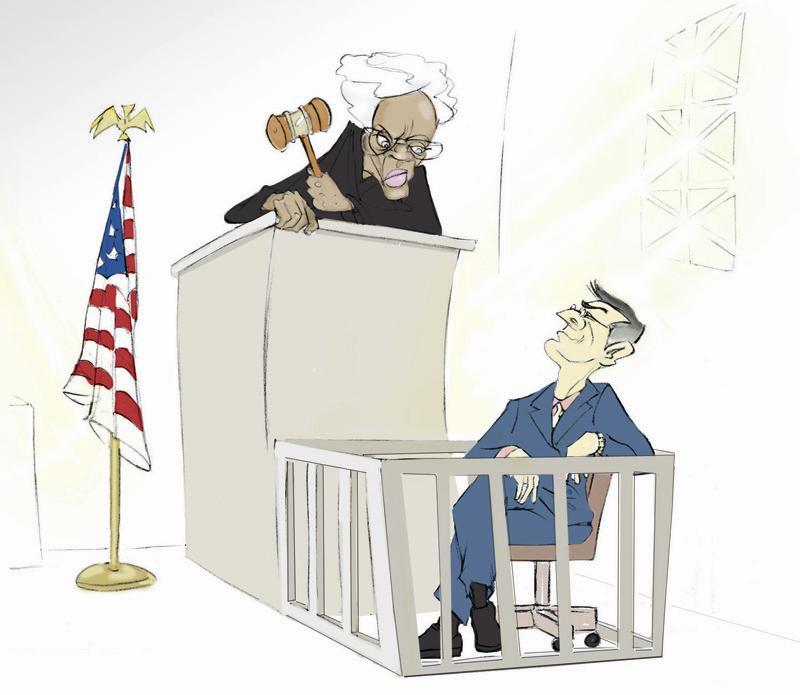7.5 State Trial Courts and the Principle of Orality
When disputes cannot be settled in a case, the parties can elect to go to trial in a state court. The trial courts have the authority to hear every case first. This section will examine the principle of orality and the adversarial system used to settle disputes in trial courts.
7.5.1 Principle of Orality
At trial, the state will present evidence showing facts demonstrating that the defendant committed the crime. The defendant may also present facts that show they did not commit the crime. The principle of orality requires that the trier of fact (generally the jury, unless the defendant waives a jury trial) considers only the evidence developed, presented, and received into the record during trial. As such, jurors should only make their decision based on the testimony they heard at trial and the evidence introduced and admitted by the court. The principle of orality would be violated if, for example, the jury searched the internet during deliberations to find information on the defendant or witnesses. Similarly, if the police question the defendant and write a report, the jury cannot consider the report unless it has been offered with the rules of evidence during the trial. The principle of orality distinguishes the functions of a trial court, developing the evidence, and the function of the appellate courts, reviewing the record for legal error (figure 7.12).

Figure 7.12. The Principle of Orality means juries only consider evidence developed, presented, and received into the record during trial.
7.5.2 Adversarial System
The principle of orality is one major difference between the adversarial and inquisitorial systems. The adversarial system (practiced in America) requires both parties to compete in making their case before the judge or jury. Frequently in civil law countries (for example, most European nations), the police, prosecutors, or investigating magistrates follow the inquisitorial system. Meaning that they question witnesses prior to trial and write summaries of their statements called a dossier. In determining guilt, the trier of fact is presented with summaries of the witness statements. Unlike trials in the United States, trials in civil law countries focus more on presenting evidence for giving appropriate sentences or punishments.
7.5.3 Licenses and Attributions for State Trial Courts and the Principle of Orality
“American Trial Courts and the Principle of Orality” by Sam Arungwa is adapted from “7.5. American Trial Courts and the Principle of Orality” by Lore Rutz-Burri in SOU-CCJ230 Introduction to the American Criminal Justice System by Alison S. Burke, David Carter, Brian Fedorek, Tiffany Morey, Lore Rutz-Burri, and Shanell Sanchez, licensed under CC BY-NC-SA 4.0. Edited for style, consistency, recency, and brevity; added DEI content.
Figure 7.12. “judge and expert witness” by Eric Molinsky/CALI, Flickr is licensed under CC BY-NC-SA 4.0.
